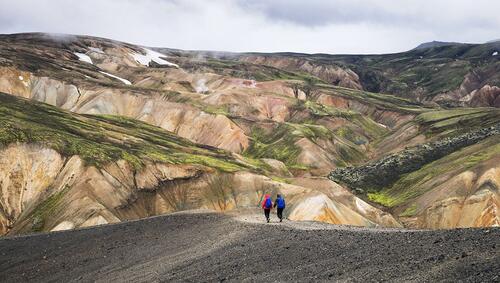As long as I can remember, I’ve been terrified of blades. So looking down at the sword in my hand, I wanted to cringe. But I had just seen my friend Andi pull this sword out of a dumpster and casually flip it in her hands. I carefully touched its point — and sighed. Of course, it was just foam.
We were inside Trap Door Escape Room’s The Greatest Freakshow in Morristown, New Jersey, and, as usual, my head was spinning. There was so much stimulation coming from all sides: Posters on the walls that said one thing but seemed to have hidden meanings, everyday objects that appeared to have dual purposes and a maze of unfamiliar rooms, sometimes with hidden doors. And on top of it, we were being timed.
Yet there was a sense of thrill. After all, I had chosen to be here. I was clearly in player mode, questioning everything to a ridiculous degree and scanning every item in every corner. In fact, I didn’t like the look of that hastily-placed stone with a PVC pipe in the middle of it. “Sword in the stone,” I obnoxiously joked, poking the blade into the pipe as I passed by.
But then I heard something click. My silly little motion had actually unlocked a door to another room. It wasn’t about skill or codes — this was pure observation and instinct that had propelled us into the next phase of our adventure.
While stitching a thread between escape rooms and traveling may seem like a stretch, the more escape rooms I’ve attempted, the more I’ve noticed myself honing the same skills that I use for traveling. And over the years, the similarities between the two have helped me become a better traveler.
The Parallels
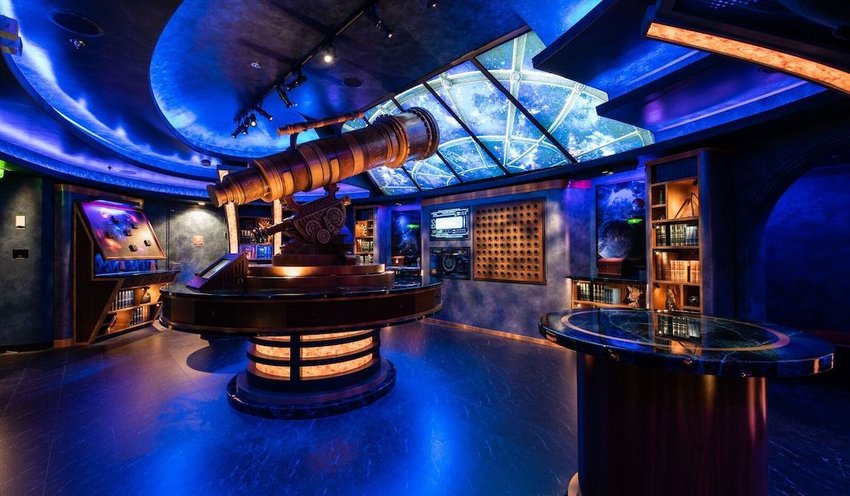
Escape rooms are artificial situations specially designed to put you in a tizzy. Traveling is an out-of-ordinary experience meant to stretch you beyond your normal daily routine. But with both you have a set amount of time — whether it’s an hour in a puzzle room or a few days on a vacation — and it’s all about strategizing how to get what you want out of the situation.
“Traveling to exotic and unfamiliar places is to embrace the unknown,” says Nate Martin, who has been called the “founding father of escape rooms” and is the co-founder and CEO of the first U.S. escape room company, Puzzle Break. “You immerse yourself in the local culture, learn customs, figure out how to get around. I myself have an irrational passion for sorting out public transit in countries where I don't speak the language. Entering and completing an escape room is no different. Participants are tourists in a strange place. They must work out the lay of the land and embed themselves to make the most of their experience.”
Shared Strategies
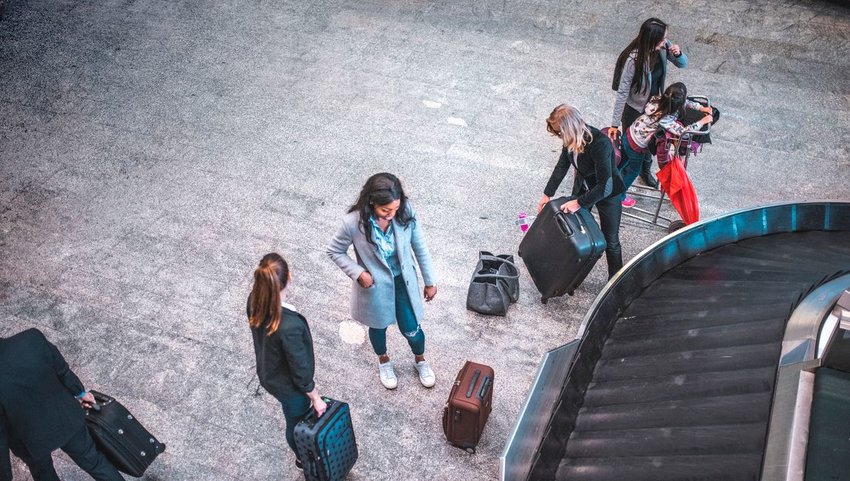
The irony is, I’ve never been good at puzzles. In seventh grade, I took an elective called Think Tank, completely focused on logic games. One look at them and my brain would start swirling with panic. But once I learned to break down the pieces and look at them objectively (and breathe!), I realized that the solution is always there, it’s just about how you find your way to the prize.
A few years ago, my friends pooled together and rented out an escape room for my birthday. As the employee walked us through the rules, it seemed like all fun and games, until he left the room and the clock started ticking.
Immediately, a mix of adrenaline and uncertainty sent me running around the room full of locks. I shouted out nonsense, in case it meant something later. After all, we weren’t really left with any specific directions except to escape.
It reminded me of my first trip alone in Ecuador three years before that. My luggage didn’t show up and it sent me into the same kind of mini-panic. What am I doing here alone? How will I get all my missing travel essentials if I don’t speak Spanish? And how am I going to get to the end of this trip and keep my sanity?
But in both situations, there was a very clear path to the finish line. After a few calming breaths, I stepped back and looked at the big picture, making a mental note of the lay of the land so that the unfamiliar surroundings now became familiar. Then I started picking away at the little clues. In the escape room, some of the wall tiles were actually secret compartments with tools for our escape. At the Quito airport, I looked at the luggage tags of the bags that were waiting and realized that they were all from days ago. Clearly none of the bags from today even made it onto the flight.
After piecing together all the bits in the escape room, we eventually found a — drumroll — second secret room. And after realizing I wasn’t the only one without my checked bag, I found my way to a horde of fellow angry passengers, as we filed all our information for our missing bags (I finally got my bag three days later!).
“Perhaps the most consistent mistake I see is lack of follow-through,” Martin says. “To succeed at an escape room, you must solve puzzles. To solve puzzles, you must actually work to solve puzzles. A common trend among unsuccessful teams is that participants start solving a puzzle and then give up along the way. They learn the hard way that the room rarely escapes itself.”
And a lost bag isn’t going to find its way back to its rightful owner without follow-through either. Ever since that first escape room reminded me so much of my luggage panic, I started to realize the common strategies — and use them to my advantage when I was traveling.
An Eye for Everything
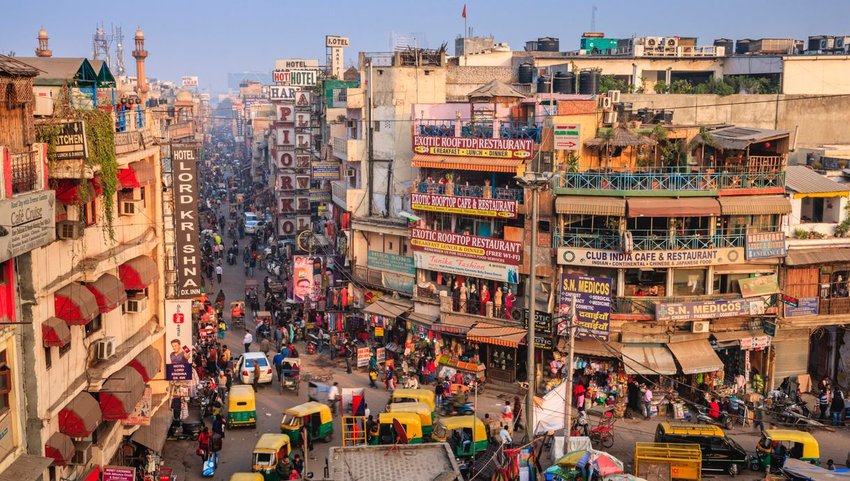
While an escape room may not be everyone’s idea of fun, I was immediately addicted to the sense of accomplishment I felt when we solved the problem. Likewise, travel often comes with its share of unforeseen challenges, but the sense of adventure from experiencing and conquering a place that once seemed slightly mythical fulfills that same sense of achievement.
Since then, I’ve found myself craving more escape rooms — especially with my friend Andi, who is an expert puzzle solver. We’ve gotten locked up in vaults and laser mazes in San Juan and immersive theater escape rooms in New York (where actors are a part of the puzzle!). And in each situation, her left brain cranks so deftly while I’m still trying to remember what number we just said out loud a second ago. Oftentimes, I just sit aside in wonder as she moves through challenges, opening padlocks and figuring out precisely how to outsmart the gamemakers.
“I love solving puzzles, but even more I love that escape rooms force me to look at my environment with new eyes,” she says. “Every little common item, that I'd normally look right past or not see at all, might be an important tool.”
That’s when I realized that even though our brains may not churn information the same way, there is a sense of observation with a common goal that allows us to enjoy the adventure together. When she comes up with a solution for a puzzle, she knows it’s going to work before she even lines up the numbers on the lock. For me, it’s more about following a hunch.
When I was in Delhi with my dad, the moment we stepped out of the hotel, a local started chatting us up. Seemingly friendly, he asked us what our plans were as we walked toward Connaught Place. He said he was on his lunch break and heading to catch a bus. But as we walked, I noticed every time there was a bus stop, he continued following us. By the third one, I asked, “Is that your bus stop?” He shrugged off the question. Finally, I flat-out asked where he was going. Realizing I’d caught him trying to con us, he turned and walked away. As I later learned, this was a common ploy to squeeze foreigners for info and eventually lure them to certain “shopping centers” to milk all their money. Thankfully finding the tiny hole in his story and following that hunch spared us any trouble.
Other times it’s just being able to hack little situations to make travels smoother by looking at new uses for common things. When I was traveling solo in Bermuda, I rented a Twizy golf cart since foreigners aren’t allowed to rent cars. Driving on the left side was challenging enough, but I also couldn’t figure out how to best navigate the winding streets on the go. I poked around the cart and finally found a way to jimmy a glove compartment lid to hold my phone, so that I was able to easily Waze around the island.
While we may inherently have some of these problem-solving abilities, my experience in escape rooms helped fine-tune these abilities. “I'm always more observant after doing an escape room,” Andi says. “I walk around the world afterwards noticing more details about my surroundings than before I went in.”
Newfound Skills
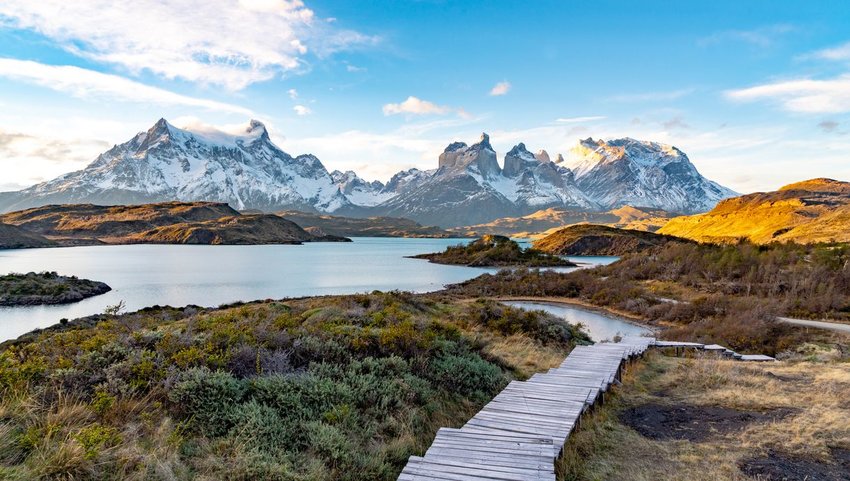
A couple of years ago, when I picked up my luggage after an outbound flight to Australia, I saw that the zipper was peeled open. It was day one of a fourteen day trip and immediately, I started stressing about whether it was worth finding a new suitcase. But I had a warranty on my Samsonite, so it seemed silly to shell out hundreds for another mediocre one on the go.
I started with simple solutions with the tools I had: I put the contents in smaller bags, so that stray items wouldn’t fall out and got a luggage belt to hold things together. And eventually, I popped into the bargain store Daiso and found an assortment of belts and packing cubes for less than $10 that kept my luggage in one piece all the way back to JFK. Success!
Sometimes it’s just using context clues in countries where I don’t speak the language or picking up on different ways of saying things, like overhearing others in the U.K. say “take away” instead of “to go.” I somehow even got through an entire one-on-one yoga class in Nepal without speaking the same language as my instructor just by following her cues.
And other times, these skills have helped fellow travelers. When I ran into a girl whose mother needed medical attention during a day-long hike in Patagonia, we weren’t sure how to get them to a doctor fastest since there was zero cell reception in Los Glaciares National Park. But after strategizing with the daughter, we split up in opposite directions as they worked their way to a trailhead a few hours back while I looked for someone with a radio. Eyeing every person I passed, I eventually saw a pair of hikers who clearly looked like a guide and hiker — and sure enough, he had a radio. It wasn’t until hours later that I got back to my hotel and checked in. The mom was okay and recovering, thanks to the help that came from the radioed call.
Since you never know what you’ll come across while traveling, it’s about being able to think quickly with the resources you have in the moment, much like Andi says about escape rooms: “When there's an obstacle in front of you and you know there's a way to get past it, you think of crazier and crazier ideas to get around it instead of just walking away.”
With limited supplies, your mind gets creative with uses. With limited time, you’re forced to trust your decisions and move forward. And whether you’re trying to get out of a room or get the most out of a trip, all it takes to succeed are keen observations, logical thinking and a huge sense of adventure.



